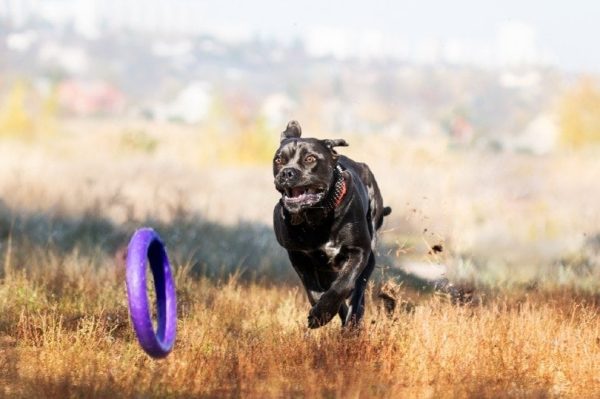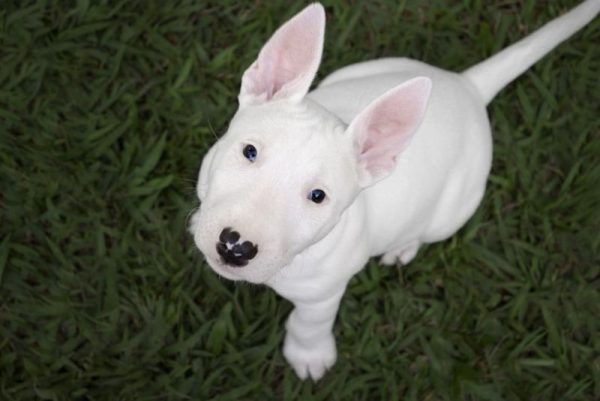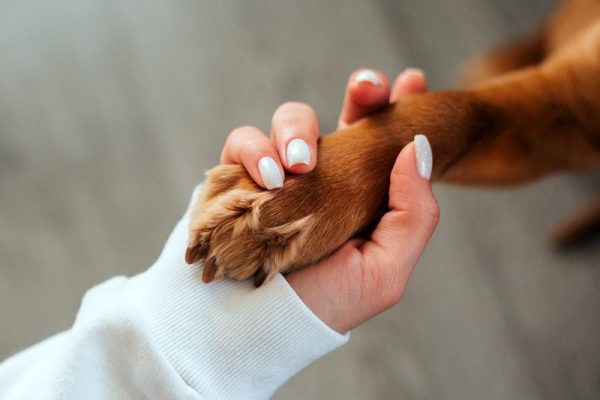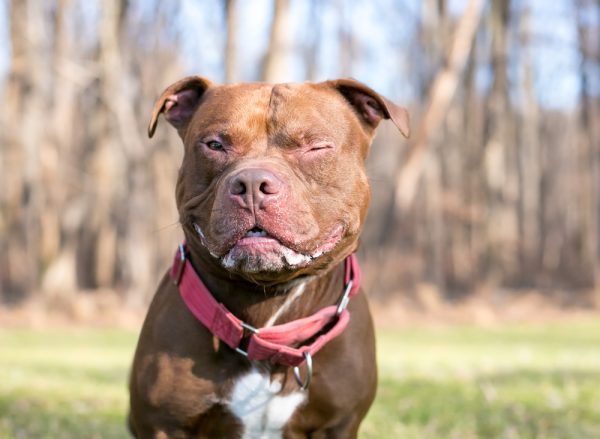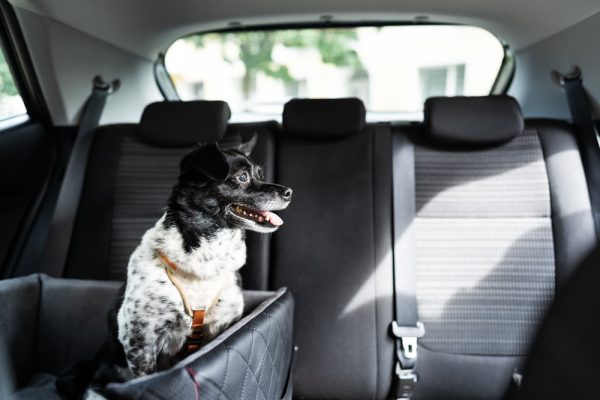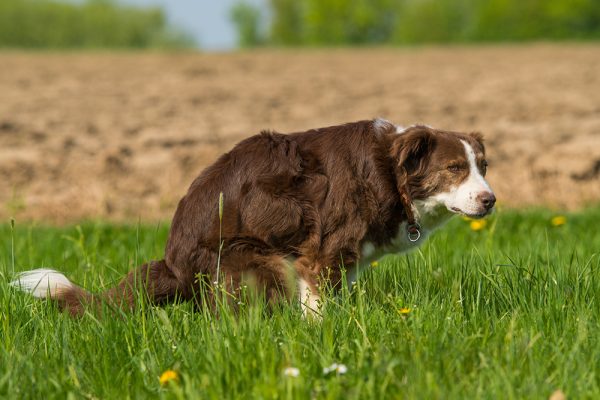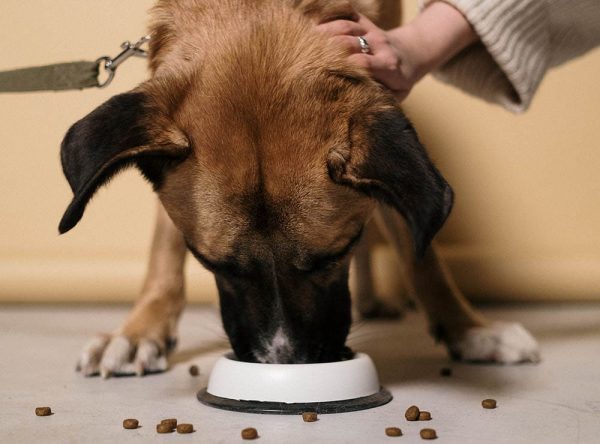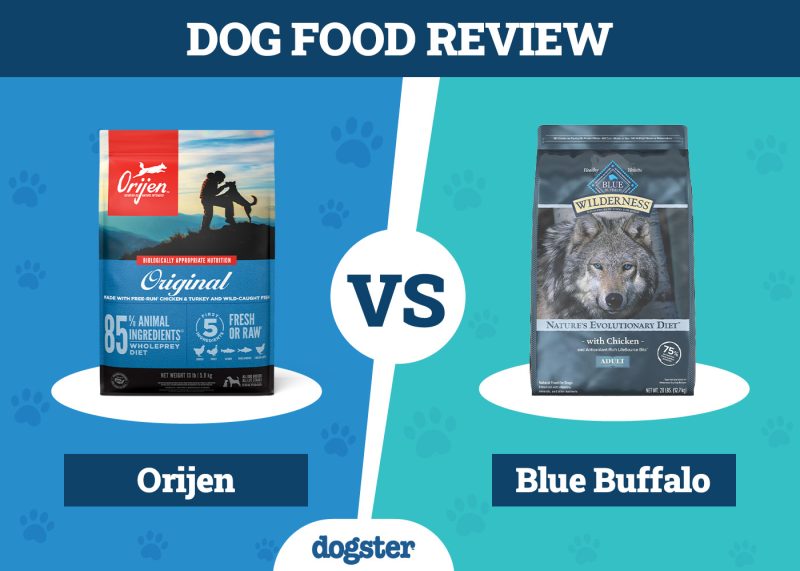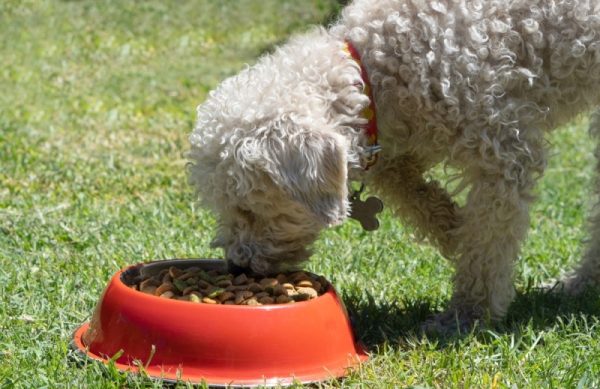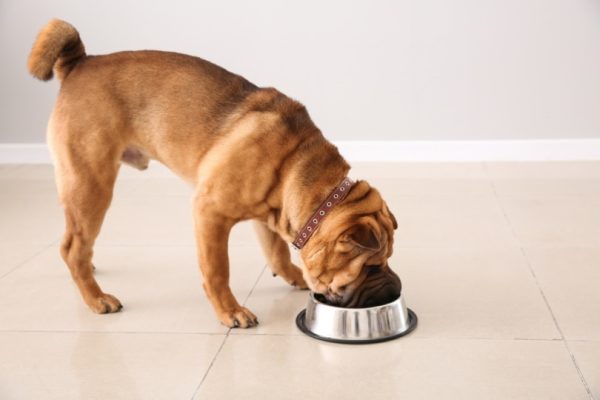In this article
View 2 More +Skunks have a unique defense mechanism that they use when they feel threatened. They produce a spray consisting of thiols and spray it from the glands under their tail. While it is typically used to defend against natural predators like foxes and badgers, if a skunk feels threatened by a human or a domestic dog, they will deploy this spray in the same way.
The sulfur compounds in the spray give it a smell of bad eggs and it is a persistent smell that is incredibly difficult to get rid of once it is on clothes or, unfortunately, dog fur. The odor can last for several weeks if you don’t deal with it. Fortunately, you can speed the process up, and, using the steps below, leave your dog smelling of dog again.

What You Will Need
Before you bring your dog indoors and start the odor-neutralizing process, make sure you have all that you need on hand and in arms length. The last thing you want is for your dog to travel throughout your home, leaving trails of skunk on every surface they touch.
- An old set of clothes for yourself
- Hydrogen peroxide
- Baking soda
- Dish soap
- Dog shampoo
- Enzyme spray
Our Favorite Products Bathing your dog may be challenging, but selecting the right shampoo can help make the process a bit easier. Our favorite products come from Hepper's Shampoo product line, offering natural, pet-friendly solutions meticulously designed to gently cleanse your dog's skin and coat without any risk of irritating or drying them out. These formulas are free of harmful additives such as dyes, soaps, sulfates, and phthalates. The Deep Cleansing Shampoo is a great option for pet owners who have difficulty neutralizing tough doggy odors. Hepper's Oatmeal Pet Shampoo is a great way to treat your pet to aloe vera and oatmeal's calming benefits while you revel in the delightful and refreshing scents! At Dogster, we’ve admired Hepper for many years and decided to take a controlling ownership interest so that we could benefit from the outstanding designs of this cool pet company!
Rating
Image
Product
Details
For Sensitive Pups
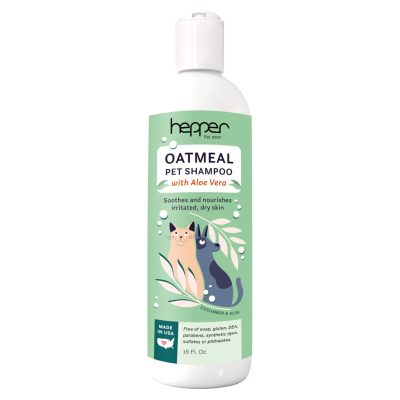
Hepper Colloidal Oatmeal Pet Shampoo
Check Price
For Smelly Pups

Hepper Deep Clean Shampoo
Check Price

The 8 Steps to Get Rid of Skunk Smell on Dogs
1. Take Your Dog Outside
First of all, that smell will spread, especially when you start washing, so you want to take your dog outside ready for the clean-up operation. However, don’t start hosing or washing straight away.
You will need to get some items ready, prepare yourself, and you should also check your dog over before you start applying anything. Stay away from outdoor furniture, especially if it has fabric covers or cushions. And make sure you’ve taken the washing in.
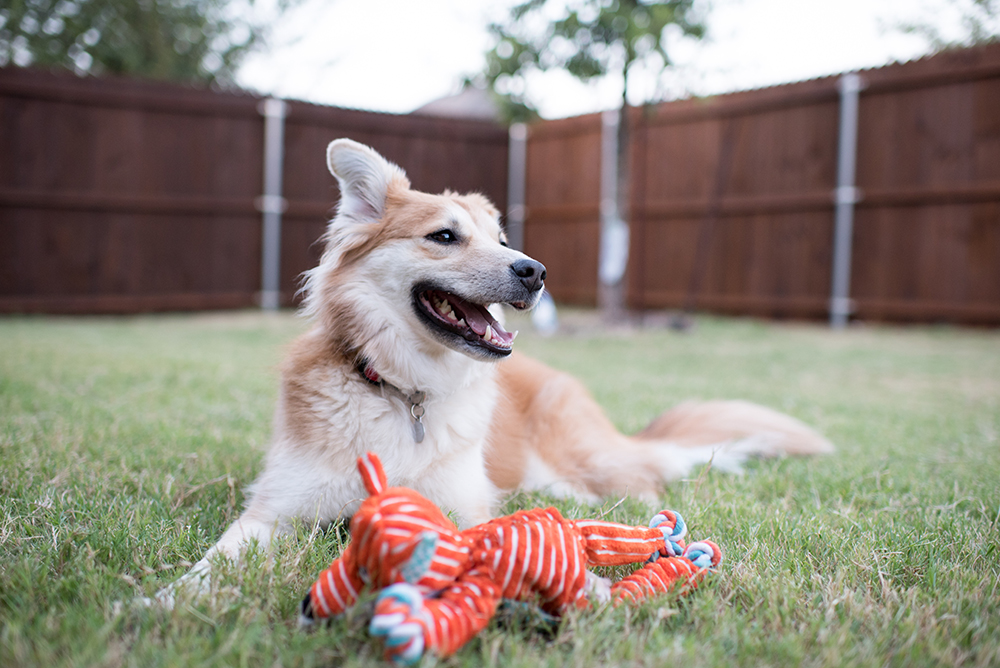
2. Cover Up or Wear Old Clothes
When you start soaking your dog, you’re going to get a concoction of water and skunk spray all over the surrounding area. It will dissipate in the air and it will also soak into clothes and other fabrics.
As well as staying away from outdoor furniture, you should also change into some old clothes, ideally a set of clothes that you don’t mind throwing away if you have to. You can get the smell out of clothes, but it can take several washes, and in some cases, you can still be left with a faint sulfur smell.
3. Check Your Dog for Scratches Before You Clean
Spray isn’t the only defense that skunks have. They can also scratch, and wild skunks can carry rabies as well as other diseases. Check your dog over for signs of injury, such as cuts, scratches, or bites. Also check their eyes as skunk spray directly in the eyes can cause redness and watering. If you see any of these issues, see your vet once your pup is clean.
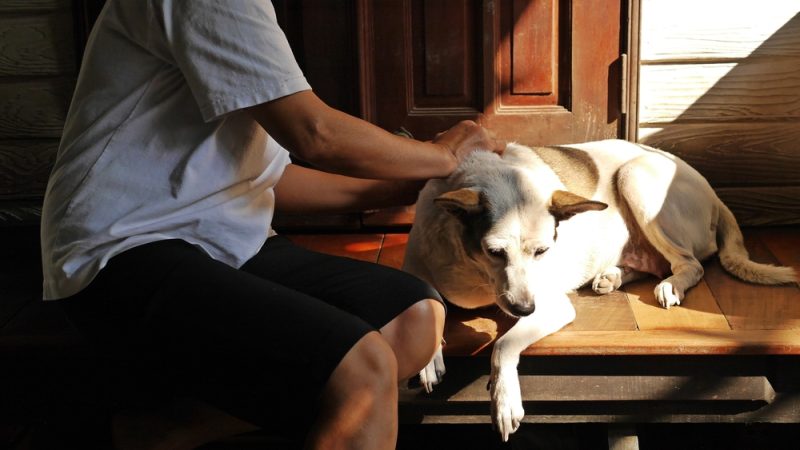
4. Try a Homemade Cleaner
Most shampoos are not designed to get rid of the smell of skunk because it is a strong smell and a unique substance. Essentially, you’re going to need something stronger.
Mix a quart of 3% hydrogen peroxide, which you can get from a pharmacy, with a quarter of a cup of baking soda and a teaspoon of liquid dish soap.
Wear rubber gloves and apply it immediately after it has been mixed. Do not leave the cleaner in a container or store it, because it can bubble over.
Rub the cleaner through your dog’s fur, leave it for a couple of minutes, and then rinse it out thoroughly. Peroxide can bleach your dog’s coat if left in too long so don’t leave it longer than a couple of minutes.
5. Use Dog Shampoo
Once you’ve thoroughly rinsed the peroxide cleaner out, apply dog shampoo in the usual way. An oatmeal shampoo will be sensitive to your dog’s skin, which is likely to feel a little raw after the encounter. Leave the shampoo in for a few minutes before rinsing and then drying your dog.
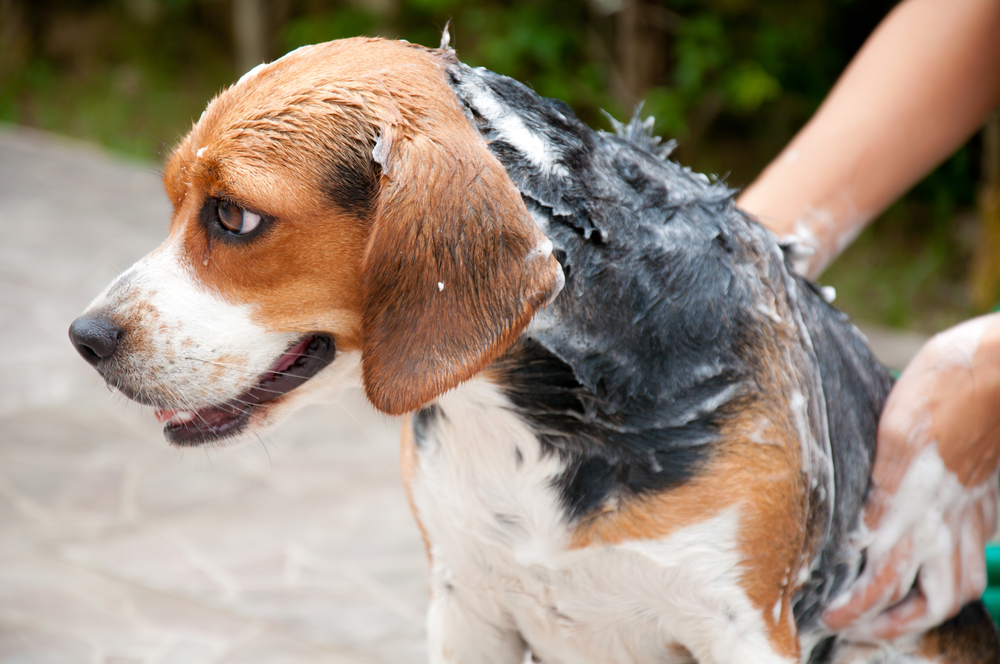
6. Clean Your Clothes
Some of the smell will likely have transferred from your dog to your clothes. If you don’t want to throw your clothes away, you can try cleaning them using an odor-eliminating laundry product or by adding baking soda to your usual laundry products. Once cleaned, leave them outside to dry naturally. You can always repeat the cleaning process to try and get more of the smell out.
If your dog gets the smell in the house, especially on fabrics like carpets or furniture, use an enzyme spray to help get rid of the smell. Spray the affected areas, leave the solution to soak in for at least an hour, and then use towels to soak up the last of the liquid before vacuuming.
7. Follow Up With Wipes
If any of the smell persists with your dog, you can use pet wipes to further reduce the smell. Wipe your dog down, especially over the area where they were hit with the skunk spray.
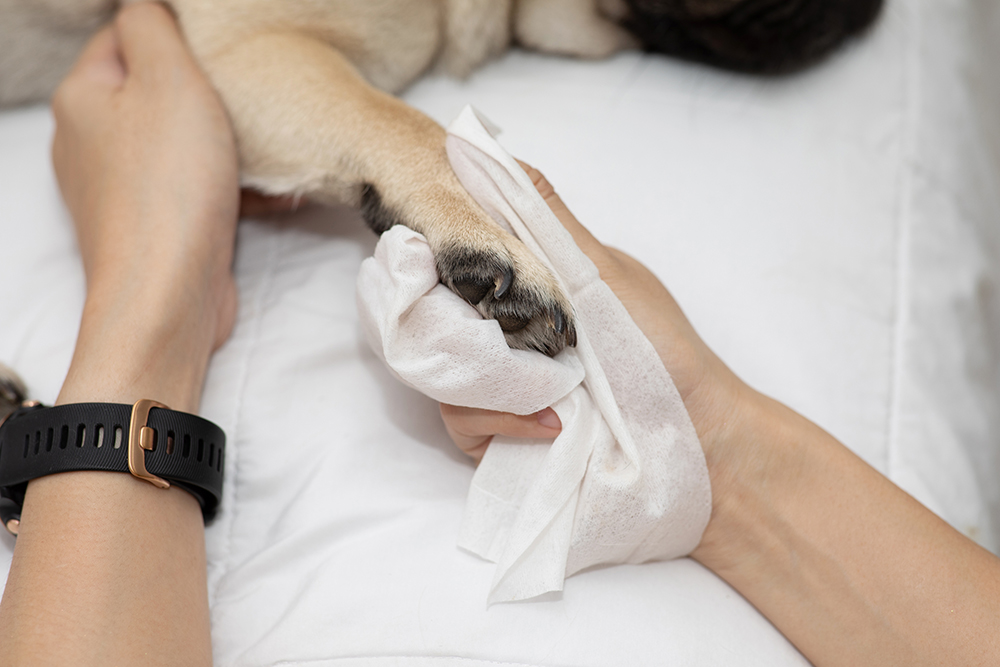
8. Stay Away
Wherever possible, keep your dog away from skunks in the future. They may not have learned from their past mistakes, but hopefully, you will have. Get rid of food sources in your yard and ensure that fencing and walls are secure so that skunks can’t get into your property and spray at will.
You can also use motion sensor lights to scare them away if they do come into your yard. If you walk your dogs near where skunks live, consider taking a different route, and ensure your dog’s recall is excellent before letting them off the leash in a skunk-inhabited area. Skunks are also most active during the early morning and evening hours, so try to keep your dog inside during those times.

Is Skunk Spray Dangerous?
Skunk spray is not considered dangerous for humans, although it can cause short-term irritation. To dogs, it can cause irritation of the eyes, potentially even leading to short-term blindness, and if the spray gets into cuts, it can cause irritation.
In rare cases, it is also possible that the spray can kill red blood cells causing anemia. This is rare and it takes heavy exposure, but it can happen and is worth looking out for.
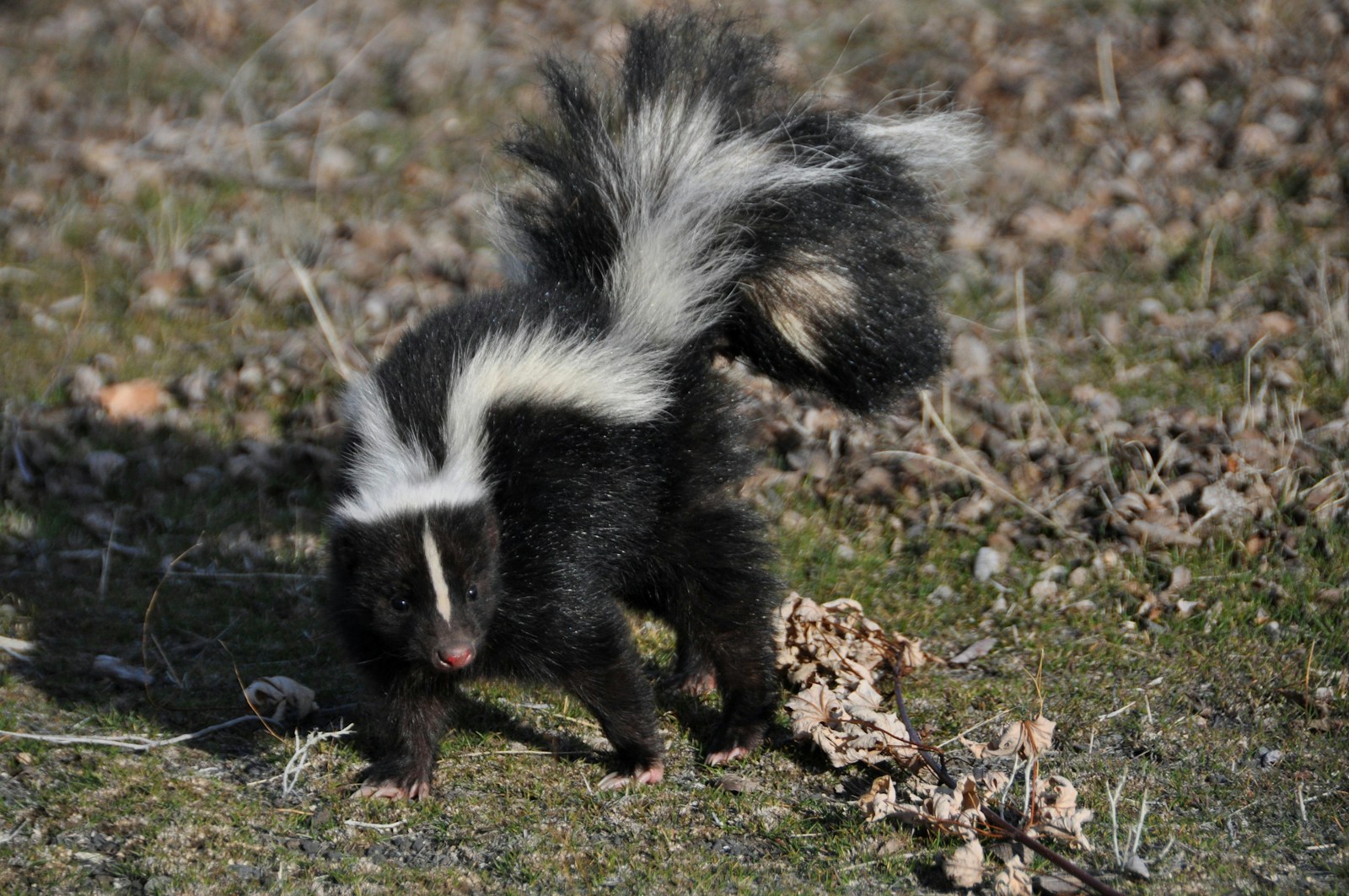
How Long Will the Skunk Smell Last on Your Dog?
Left alone, the smell of skunk spray can last several weeks on your dog. The quicker you act, the less likely that the smell will linger, because it won’t have as much chance to soak into the coat. A bigger concern is if a skunk bites because they are among the animals most commonly reported as carrying rabies in the U.S., along with raccoons and foxes.
- Only Natural Pet Shampoo - Our vegan, plant-based formulation is made with safe and natural...
- No Soap - A cat and dog wash free from soaps, glutens, dyes, DEA, sulfates and phthalates means it's...
- Colloidal Oatmeal - Formula soothes and nourishes dry, irritated skin, providing itchy skin relief...

Conclusion
Skunks are not usually aggressive, and they will typically choose to run rather than fight or defend themselves. However, they do have a very unique defense mechanism at their disposal. Skunk spray is well known for having a noxious aroma that is difficult to get rid of. It can stick to clothes and other fabrics for weeks, and it is similarly difficult to get off of dogs and other domestic animals.
If your dog gets too close to a skunk and spooks it, you may have a very smelly problem on your hands. Fortunately, the spray isn’t usually dangerous, except in rare circumstances, and while it can last up to three weeks without cleaning, there are steps you can take to help eradicate the smell from your dog, your clothes, and your home.
Featured Image Credit: UfaBizPhoto, Shutterstock





